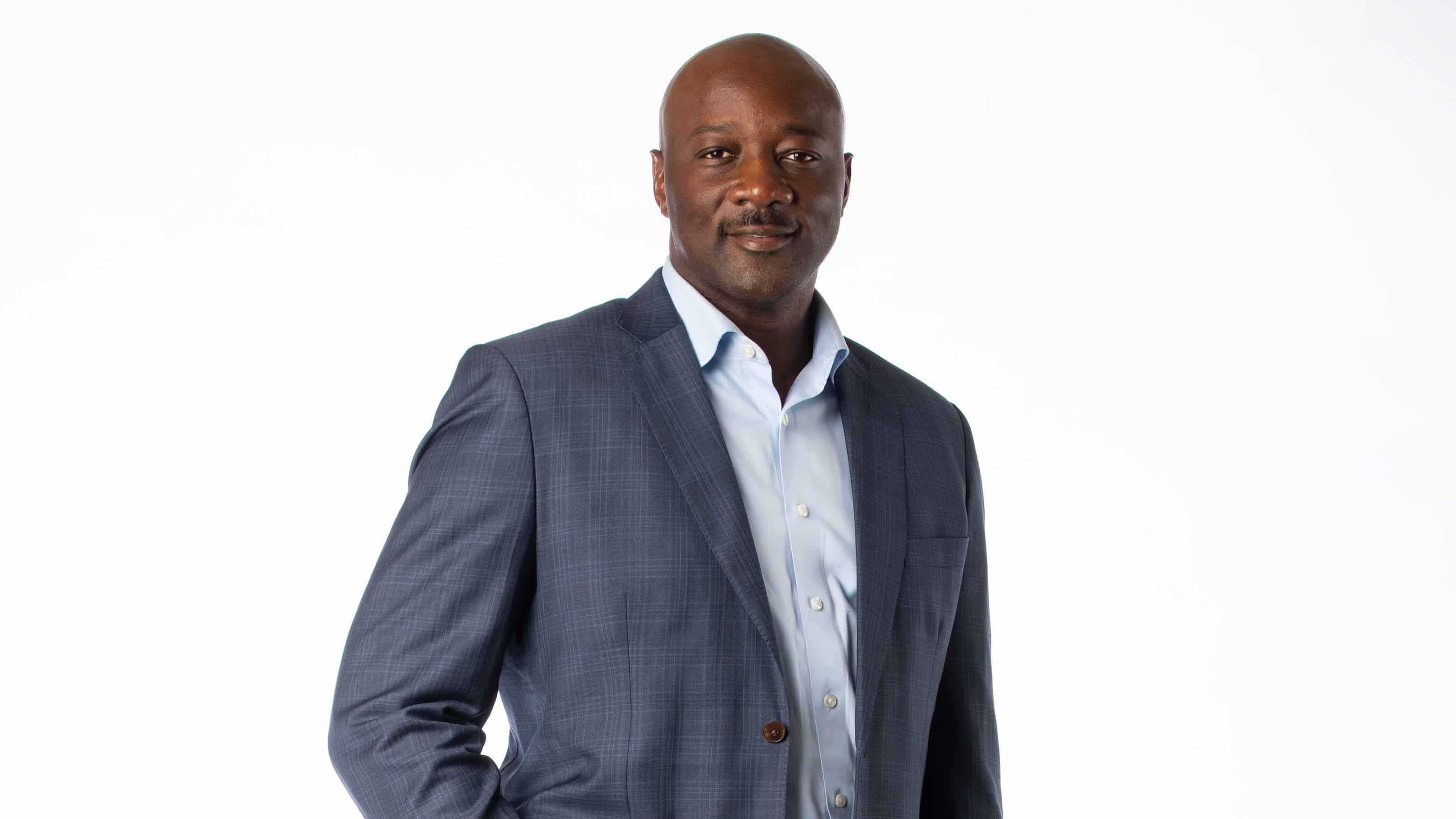Donor-Advised Funds: The Gift That Keeps on Giving
Expert guidance on how this charitable vehicle can make a difference.


Profit and prosper with the best of Kiplinger's advice on investing, taxes, retirement, personal finance and much more. Delivered daily. Enter your email in the box and click Sign Me Up.
You are now subscribed
Your newsletter sign-up was successful
Want to add more newsletters?

Delivered daily
Kiplinger Today
Profit and prosper with the best of Kiplinger's advice on investing, taxes, retirement, personal finance and much more delivered daily. Smart money moves start here.

Sent five days a week
Kiplinger A Step Ahead
Get practical help to make better financial decisions in your everyday life, from spending to savings on top deals.

Delivered daily
Kiplinger Closing Bell
Get today's biggest financial and investing headlines delivered to your inbox every day the U.S. stock market is open.

Sent twice a week
Kiplinger Adviser Intel
Financial pros across the country share best practices and fresh tactics to preserve and grow your wealth.

Delivered weekly
Kiplinger Tax Tips
Trim your federal and state tax bills with practical tax-planning and tax-cutting strategies.

Sent twice a week
Kiplinger Retirement Tips
Your twice-a-week guide to planning and enjoying a financially secure and richly rewarding retirement

Sent bimonthly.
Kiplinger Adviser Angle
Insights for advisers, wealth managers and other financial professionals.

Sent twice a week
Kiplinger Investing Weekly
Your twice-a-week roundup of promising stocks, funds, companies and industries you should consider, ones you should avoid, and why.

Sent weekly for six weeks
Kiplinger Invest for Retirement
Your step-by-step six-part series on how to invest for retirement, from devising a successful strategy to exactly which investments to choose.
Jacob Pruitt is the president of Fidelity Charitable, the nation’s largest donor-advised fund.
For someone who is new to donor-advised funds, what do they do and how do they work? They’re similar to an investment account. You put money or other assets into an account, and if you itemize, you can claim the tax deduction up front. You have the ability to invest your money in a variety of mutual funds, including funds that focus on environmental, social and governance (ESG) issues. Then you identify an IRS-approved 501(c)(3) nonprofit you want to support. Fidelity Charitable can accept a variety of assets, including publicly held stocks, bonds and mutual funds, shares in privately held companies and private-equity firms, and restricted stock. We’ll convert those assets to cash and put them in your charitable giving account. Even if you don’t itemize, giving an appreciated asset to a donor-advised fund provides a tax benefit because you may eliminate paying taxes on capital gains you’ve accumulated through the years.
This giving season, what advice do you have for people who want to get the most out of their charitable dollars but are concerned about the impact of inflation and a recession on their family budgets? I would encourage them to continue to give if they can. The need for nonprofits is there regardless of the economic environment. They’re under pressure from a multitude of factors, including stock market volatility and inflation. In these challenging times, people have to be even smarter about how they give and make sure that they do their homework. We’re asking our donors who typically contribute to continue to give, and they have. Year to date, we’ve seen about $4.8 billion in grants, an increase of about 11% over the same period last year. Our donors put money in early on and now they’re picking the causes that they want to support. That’s the beauty of a donor-advised fund: Because you have put the money into the account during positive market conditions, it becomes a ready reserve to draw on even during economic downturns.
From just $107.88 $24.99 for Kiplinger Personal Finance
Become a smarter, better informed investor. Subscribe from just $107.88 $24.99, plus get up to 4 Special Issues

Sign up for Kiplinger’s Free Newsletters
Profit and prosper with the best of expert advice on investing, taxes, retirement, personal finance and more - straight to your e-mail.
Profit and prosper with the best of expert advice - straight to your e-mail.
Where are donors directing their grants this year? We are seeing dollars go to a variety of categories. About $128 million in contributions have been taken out of Fidelity Charitable to support Ukraine. Organizations that support food security are definitely getting contributions from the fund, along with educational, religious and health organizations.
Many people donate appreciated securities to donor-advised funds. Has the bear market led to a decline in those contributions? Obviously, the market has impacted donations of appreciated securities. What we’re seeing is that individuals are picking the right assets to donate. They’re rebalancing their portfolios and looking at different ways to still contribute to their Fidelity Charitable Giving Account. And we’re still seeing donations of cash as well.
Despite recent downturns, many early cryptocurrency investors are still sitting on large gains. Is that an asset they can contribute to Fidelity Charitable? Yes. We saw a huge increase in contributions of cryptocurrency to Fidelity Charitable last year. A large portion of that was bitcoin, litecoin and ethereum. When we get contributions of cryptocurrency, we convert them to cash immediately and add the cash to the donors’ accounts, where they may use it to make grants or allow it to continue to grow. I would encourage individuals who are still sitting on cryptocurrency gains to consider contributing them to a donor-advised fund.
Profit and prosper with the best of Kiplinger's advice on investing, taxes, retirement, personal finance and much more. Delivered daily. Enter your email in the box and click Sign Me Up.

Emma Patch joined Kiplinger in 2020. She previously interned for Kiplinger's Retirement Report and before that, for a boutique investment firm in New York City. She served as editor-at-large and features editor for Middlebury College's student newspaper, The Campus. She specializes in travel, student debt and a number of other personal finance topics. Born in London, Emma grew up in Connecticut and now lives in Washington, D.C.
-
 Ask the Tax Editor: Federal Income Tax Deductions
Ask the Tax Editor: Federal Income Tax DeductionsAsk the Editor In this week's Ask the Editor Q&A, Joy Taylor answers questions on federal income tax deductions
-
 States With No-Fault Car Insurance Laws (and How No-Fault Car Insurance Works)
States With No-Fault Car Insurance Laws (and How No-Fault Car Insurance Works)A breakdown of the confusing rules around no-fault car insurance in every state where it exists.
-
 7 Frugal Habits to Keep Even When You're Rich
7 Frugal Habits to Keep Even When You're RichSome frugal habits are worth it, no matter what tax bracket you're in.
-
 9 Types of Insurance You Probably Don't Need
9 Types of Insurance You Probably Don't NeedFinancial Planning If you're paying for these types of insurance, you may be wasting your money. Here's what you need to know.
-
 Money for Your Kids? Three Ways Trump's ‘Big Beautiful Bill’ Impacts Your Child's Finances
Money for Your Kids? Three Ways Trump's ‘Big Beautiful Bill’ Impacts Your Child's FinancesTax Tips The Trump tax bill could help your child with future education and homebuying costs. Here’s how.
-
 Key 2025 Tax Changes for Parents in Trump's Megabill
Key 2025 Tax Changes for Parents in Trump's MegabillTax Changes Are you a parent? The so-called ‘One Big Beautiful Bill’ (OBBB) impacts several key tax incentives that can affect your family this year and beyond.
-
 Amazon Resale: Where Amazon Prime Returns Become Your Online Bargains
Amazon Resale: Where Amazon Prime Returns Become Your Online BargainsFeature Amazon Resale products may have some imperfections, but that often leads to wildly discounted prices.
-
 What Does Medicare Not Cover? Eight Things You Should Know
What Does Medicare Not Cover? Eight Things You Should KnowMedicare Part A and Part B leave gaps in your healthcare coverage. But Medicare Advantage has problems, too.
-
 QCD Limit, Rules and How to Lower Your 2026 Taxable Income
QCD Limit, Rules and How to Lower Your 2026 Taxable IncomeTax Breaks A QCD can reduce your tax bill in retirement while meeting charitable giving goals. Here’s how.
-
 Seven of the Best Budgeting Apps for 2025
Seven of the Best Budgeting Apps for 2025If you're searching for a great budgeting app, here are our top picks.
-
 Roth IRA Contribution Limits for 2026
Roth IRA Contribution Limits for 2026Roth IRAs Roth IRAs allow you to save for retirement with after-tax dollars while you're working, and then withdraw those contributions and earnings tax-free when you retire. Here's a look at 2026 limits and income-based phaseouts.